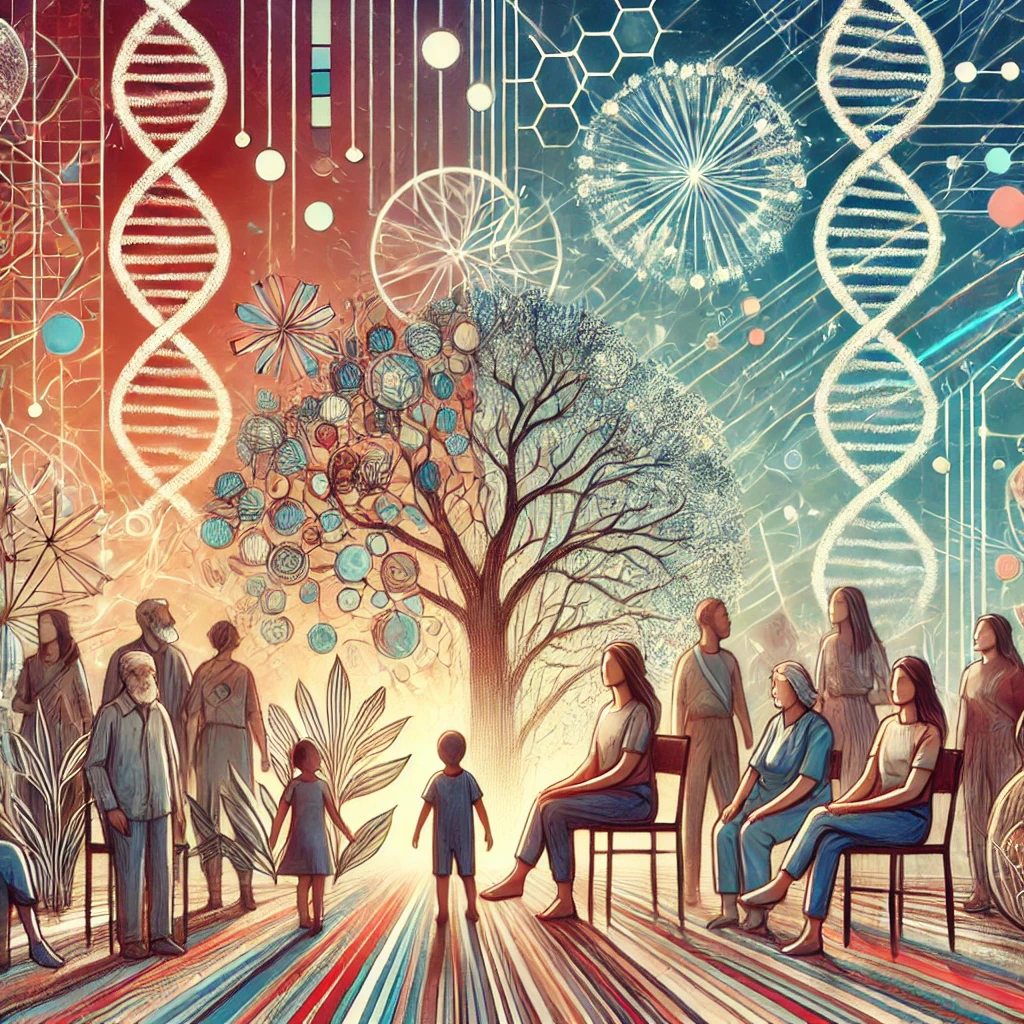
In an increasingly interconnected world, whether blood should matter in defining who we are and where we belong is more relevant than ever. Here are some key points to consider in this debate:
Genetic History and Genealogy
Genetic history, or genealogy, does not innately tie you to a group of people or a specific area of the globe. For example, just because you have Irish “blood” does not mean that Ireland is your “homeland.” If we were to trace our roots back far enough, we would all end up in sub-Saharan Africa, where it is believed that humans first evolved. So, if we claim Ireland, India, or Kenya as our roots, we must acknowledge that these roots extend far beyond the present. Each culture, tradition, and social norm evolves from previous ones, making nothing unique to any group.
Biological Parenthood in Nature
In nature, there are species where the young do not know their biological father and thrive in a communal upbringing. This “it takes a village” approach shows that biological parents are not the sole determinants of an individual’s identity. Humans, too, can find their sense of self and belonging through various relationships and experiences, not just genetic ties. Understanding who you are is more about the environment and community you are part of than the individuals who contributed to your gene pool.
Labels and Divisiveness
Emphasizing genetic heritage can perpetuate divisiveness in society. When we identify ourselves primarily as Hispanic, Native, or any other ethnicity, we label not only ourselves but also others. These labels can create unnecessary barriers and reinforce stereotypes. Instead, we should focus on our shared humanity and the diverse experiences that shape us. Embracing a broader perspective can reduce divisiveness and promote inclusivity.
Modern Use of Genetics
In today’s world, genetics play a crucial role in uncovering tendencies for certain illnesses, but this can be achieved without knowing the individuals who contributed to your gene pool. Advances in medical science allow us to benefit from genetic information without being bound by ancestral connections. This shift underscores the importance of using genetics as a health and well-being tool rather than defining identity.
In conclusion, while our genetic makeup is integral to our biological reality, it should not define who we are or where we belong. Our identities are shaped by many factors, including our experiences, communities, and the cultures we engage with. Moving beyond genetic heritage constraints, we can foster a more inclusive and connected world where everyone is valued for their unique contributions rather than their bloodline.